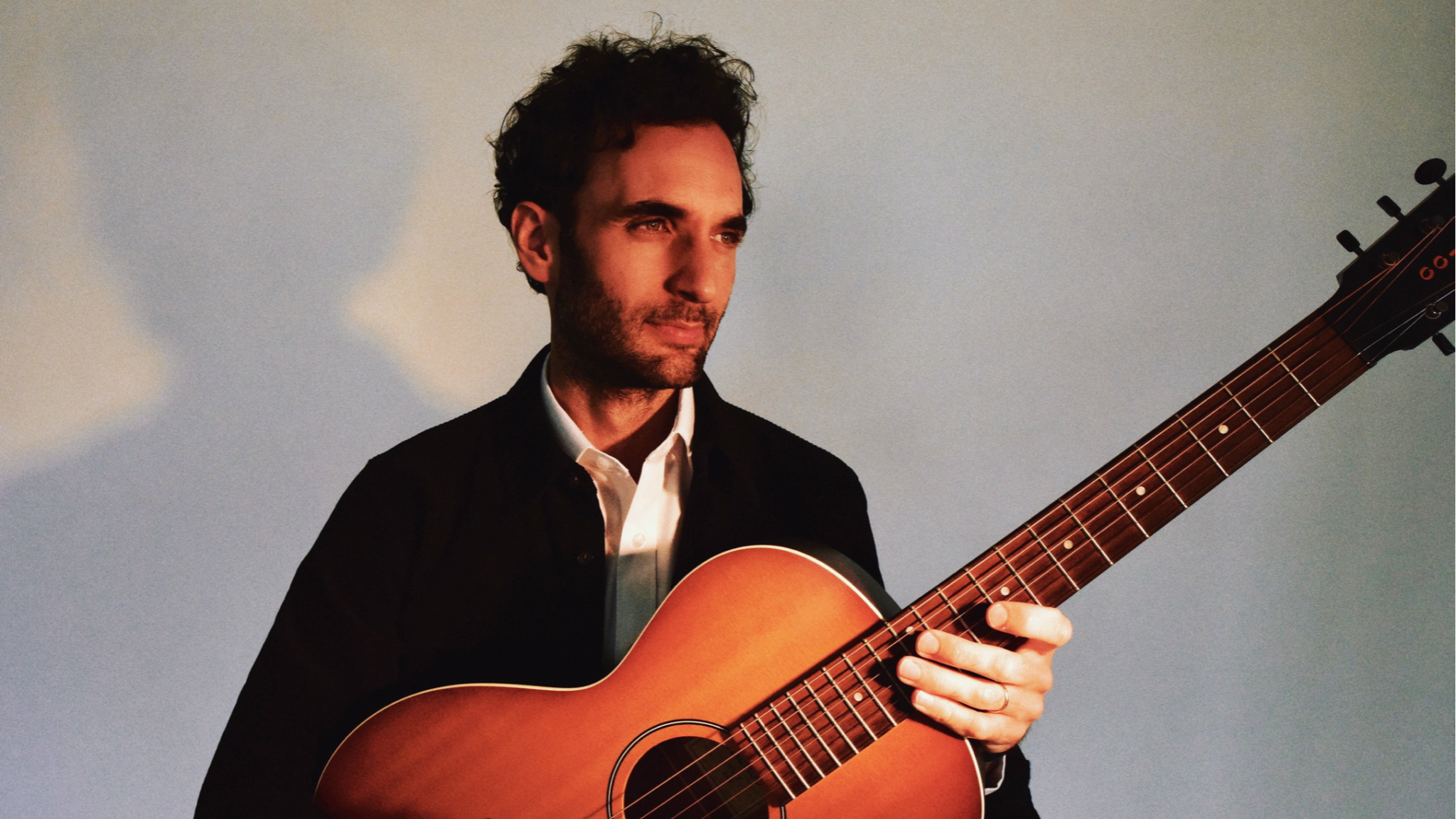When a younger, established guitar phenomenon has a wide band of inclusion with other varied guitarists, including Jim Hall, Nels Cline, and Leo Kottke, it is a recognition that their ear has an expansive and deep listening range. Julian Lage (rhymes with beige), as a child prodigy on guitar, had already shown his ability to avoid labels. He has instead demonstrated a range of explorations with his instrument, embracing influences by other artists and genres, and creating his own blend of musical statements.
Receiving early notoriety at eight years of age, having played with luminaries including Pat Metheny and Carlos Santana, Lage became the subject of a 1996 Academy Award-nominated documentary, Jules at Eight.
His musical gifts allowed him to accelerate through formal training and education. He performed at the 2000 Grammy Awards at the age of twelve, and three years later became a faculty member at the Stanford Jazz Workshop at Stanford University. Lage expanded his musical appetite and aptitude and pursued classical music, receiving classical training from the San Francisco Conservatory of Music and becoming one of the youngest graduates from Berklee College of Music, reaching this achievement at the tender age of 20.
A primary characteristic of his style of guitar playing is his chameleonic ability to transition spontaneously from any given genre, such as opening with a gypsy Django riff, then to a Delta blues chord progression and off to a folksy acoustic ballad and then to a wailing, searing rock lead.
His technique exhibits an impeccable control of his instrument, seemingly effortlessly changing gears in time signature, melody and rhythm. There is always a sustained variety in the choices he makes across the fretboard, as if one musical thought has just been replaced by another.
Nominated for a Grammy award, Lage’s debut album Standing Point (2009) was well received by critics, and strongly reviewed by Michael G. Nastos from AllMusic: “Its diversity, depth of character, and high level of musicianship bode well for the future of Julian Lage — a legitimate rising star.”
Room (2014) brought Lage together with the established experimental and eclectic expertise of jazz/avant-garde guitarist Nels Cline. According to album credits and narrative, “each player brought only an acoustic and electric guitar; there are no effects pedals. The recordings were done absolutely live. Both men brought material, but it’s not the formal compositions that delight so much as the kinetic dialogue that occurs within them.” This would create an association between Lage and Cline that would drive forward other musical recordings, performances and collaborations.
A more commercially accessible and best-of-the-year album release-nominated choice in several top jazz magazines, Modern Lore (2018) brings back the same trio from Lage’s 2016 acclaimed electric debut release Arclight. With bassist Scott Colley and drummer Kenny Wollesen coupled with singer, songwriter, and producer Jesse Harris, an intense chemistry is brewed. With a withering mix of styles circling the rock and blues genre, Lage lays down his virtuosity on covers and original material. Critic Gareth Thompson of AllAboutJazz.com expresses its depth, “Modern Lore seeks out the very foundations of rock music and digs deep. Retro this is not, refined it certainly is. Julian Lage is the ultimate jazz curator, with history in his fingertips. He conjures bygone eras, shakes off their dust, then hands you them anew.”
With his current release, View with a Room (2022), Lage retains a trio format but includes veteran jazz guitar and instrumental master Bill Frisell. Frisell’s influence on several compositions are substantial and offer further range and string-plucking musings, as reviewed by JazzTimes, “Veteran six-stringer Bill Frisell…is the spark that helps give Lage his dream of adding extra layers of instrumentation to each track.”
The style of both guitarists is in sync with a twanging Americana sound, with lush guitar duets mixed in. Receiving high marks from critics, this release offers the senior legend giving up room to the younger virtuoso; as reviewed by JazzTimes, “Overall, this is a vibrant mix of swing, blues, and elegant arrangements that showcase the growing compositional skill of one of today’s brightest jazz guitarists”
Lage’s live performances exhibit a signature of emotional playfulness and an expressive nature, seemingly wanting to share the joy of creating music, and improvising on the spot. Onstage, the ever-changing lineup of high-grade talent in duos, trios, quartets and more, offers an unrestrained direction in whatever musically adventurous pathway he wishes to venture. This was particularly on display earlier this summer at the Newport Jazz Festival, where he electrified audiences, delighting new and veteran fans alike.
As there is no limitation for a gifted musician of Lage’s caliber technically, the frontier in front of him is an endless exploration instrumentally and compositionally. The jazz listener, fellow musicians, and collaborators can all continue to engage in Lage’s career trajectory.
